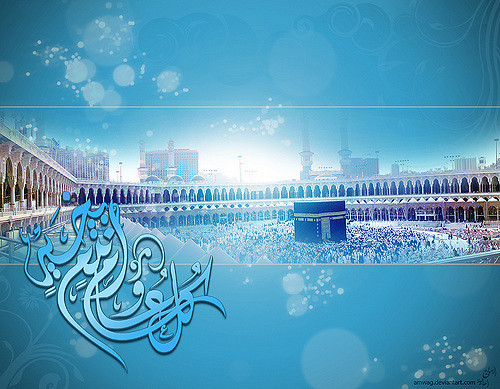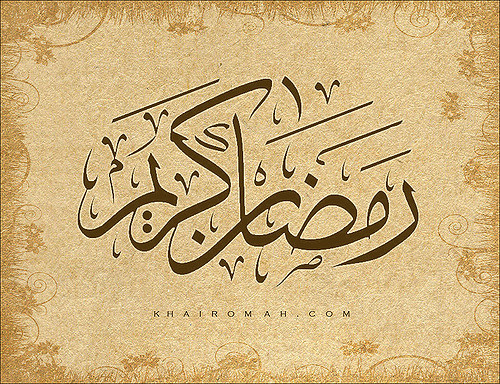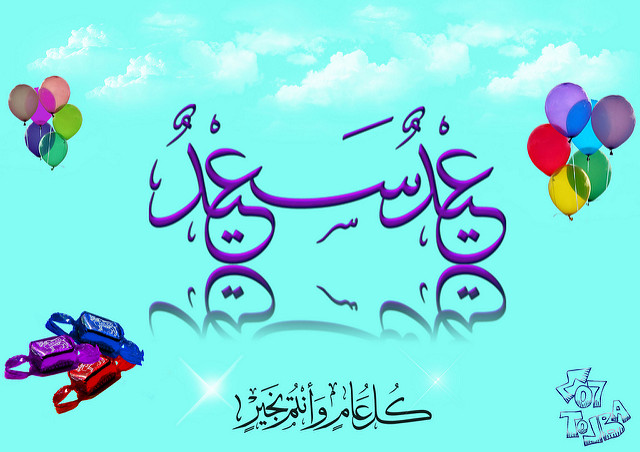Special Arabic Occasions: What they are, What to Do and Say in them? Posted by Ibnulyemen اِبْنُ اليَمَن on Apr 15, 2017 in Arabic Language, Culture, Vocabulary
Certain linguistic expressions are associated with specific cultural and religious occasions. For example, “Happy Easter!”, “Joyeuses Pâques!”, and “Frohe Ostern!” are expressions said in special occasions in English; French; and German, respectively. Among the most culturally celebrated, congratulation-invoking, and religiously observed occasions among Arabs (and Muslims) are Eid al-Fitr, Eid al-AdhHa, Ramadhan, and Friday of every week. In these feasts and times, people use certain expressions to exchange felicitations. Starting with the last, let’s look at each occasion singly.
- Friday يَوم الجُمعَة
Friday (يَوم الجُمعَة) is so special for Arabs (and Muslims) because it the day during which weekly congregational prayer (صَلاة الجَمَاعَة) is held at around noon. Prior to the prayer, a sermon (خُطبَة) is given. It is a typical religious speech sprinkled with verses (آيَات) from the Quran (القُرآن) and sayings/Hadeeths (أَحَادِيث) of the prophet (النَّبِي). Its purpose is to remind people of morals (أَخلاق) and proper behavior (السِّلُوك الحَسَن). In most Arab countries, Friday is a public holiday (عُطْلَة رَسمِيَّة). During this day, people, especially close kin, visit each other. In Yemen, for instance, families plan ahead for visits so that a decent lunch is prepared for the entire extended family. Typically, visits are made after Friday prayer (صَلاة الجُمْعَة). Families normally spend the entire afternoon together talking and socializing, such social gathering is made more interesting via chewing Qat (القَات) – an interesting topic that I will talk about in another blog. Although there is variation from one Arab country to another on the kind of activities done on this day, the concept is still the same – socializing and maintaining family ties. Among the linguistic expressions used on this day are:
جُمعَة مبَارَكة Blessed Friday!
جُمْعَتكم مُبارَكَة may you have a Blessed Friday!
جُمعَة مُباركة على الجَمِيع Blessed Friday to all!
- Ramadhan رَمَضَان
Ramadan (رَمَضَان) is a month during which fasting is required of every Muslim that has reach puberty (exceptions exist). The word رَمَضَان is a name of a month in the Hijri Calendar (التَّقوِيم الهِجرِي). Muslims are required to abstain from food and drink consumption or engaging in sexual relations from dawn (الفَجْر) till sunset (غُرُوب الشَّمس). For most Arabs, this is a month during which many religious, cultural, and social activities take place. Besides fasting, most Arabs observe TaraweeH Prayer (صَلاة التَّراوِيح), a lengthy congregational prayer that is optional. It is common that people break their fast (اِفطَار) in large groups in public places. Spending the whole night playing different types of games, watching TV, or talking and socializing till meal before the dawn (سَحُور) are other activities that most people enjoy. Among the common congratulatory linguistic expressions used during Ramadhan are:
شَهر كَرَيم Happy Month!
رَمَضَان كَرِيم Happy Ramadhan!
شَهر مُبارَك Blessed Month!
- Eid al-Fitr عِيد الفِطْر
Eid al-Fitr (عِيد الفِطر) is a cultural and religious festivity during which Muslims celebrate the end of Ramadhan. The very name of the occasion عِيد الفِطر means the festivity of breaking the fast. This day coincides with the first day of the month of Shawwal (شَوَّال), a Hijri month. On this day, going to mosques for Eid Prayer (صَلاة العَيد) is the first activity Arabs (and Muslims) do. Donning their best clothes, people visit their relatives and give different types of gifts and sweets. They have lunch in each other’s houses and spend the rest of the day talking, gaming, and socializing. The type of activities varies from one Arab country to another. Ceremonies, frequent social visits, fun activities, and decent delicious food are enjoyed from three days to one week. In many Arab countries, three to five days are announced as a public holiday so that people have ample time to entertain and celebrate this occasion enjoyably. For this reason, Eid al-Fitr (عِيد الفِطر) is also called Small Eid (العِيد الصَّغِير). Among the popular linguistic expressions used for congratulation in this occasion are:
عِيد مُبَارك Happy Eid!
فِطر مُبَارك Happy Eid!
عِيد سَعِيد Happy Eid!
كُل عَام وأنتُم بِخير Best Wishes!
- Eid al-AdhHa عِيد الأَضحَى
Eid al-AdhHa (عِيد الأَضحَى) is fairly similar to Eid al-Fitr (عِيد الفِطر) in terms of cultural and social activities. Religiously, it is the day of sacrifice. That is, every Muslim who’s able to sacrifice an animal should do so and distribute its meat to others. This is what makes it distinctive from Eid al-Fitr (عِيد الفِطر). Therefore, it is always associated with overeating of meat. Besides, public holiday last longer. As a result, it is also called the Big Eid (العِيد الكَبِير). Most Arabs congratulate each other on this occasion using these phrases:
عِيد مُبَارَك Happy Eid!
أَضْحَى مُبَارَك Happy Eid!
عِيد سَعِيد Happy Eid!
كُل عَام وأَنتُم بِخَير Best Wishes!

Build vocabulary, practice pronunciation, and more with Transparent Language Online. Available anytime, anywhere, on any device.







Comments:
Aboo Jaufuraĺly:
very useful explanation
shabeer:
good
what will say for Easter in Arabic?
ibn al-Yemen:
@shabeer we say:
فِصْح مَجيد — fiSH majeed!
shabeer:
can you suggest any books or videos to learn arabic?
ibn al-Yemen:
@shabeer This is the place to start; it is essential that you get the basics right. It is worth the time and go sequentially and systematically; leave the difficult vocabulary memorization until you get the basics right. You might want to try transparent language online. There is a 14-day free trial.